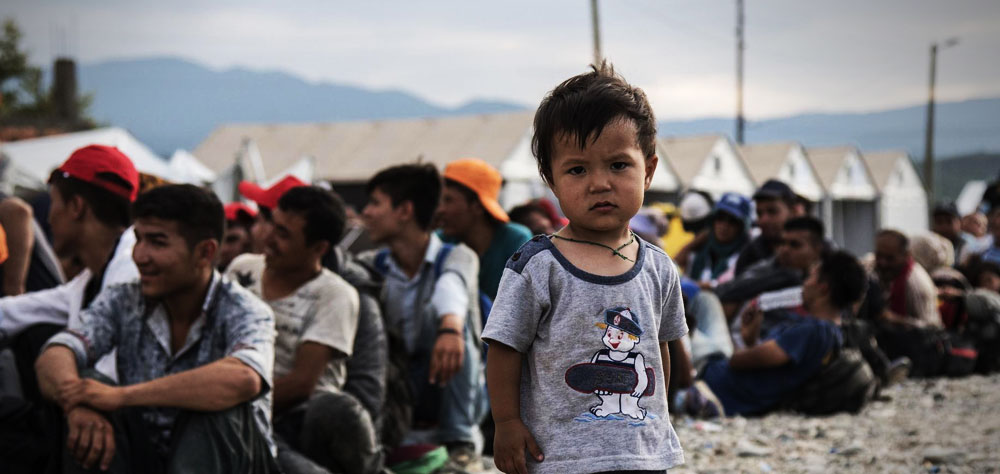Alwaght- Regarding recent international refugee crisis, the European Union's measures could be assessed very poor with lack of unity among the meber states being the main reason behind it.
The refugees have always constituted part of the Europe’s history, with their number seeing a considerable increase since the 1990s. The refugees are well recognized as part of the European Union’s cultural, economic, and social structures.
The EU generally accepts refugees who have desired features: wealty people who secure economic profits for the European bloc as weel as experts or educated people who are advantageous to the European countries.
In fact, Europe’s refugee and migrant admission policy is highly selective, and more than any other thing focuses on the national interests of the hosting states, something running counter to the terms of the 1951 Geneva Refugee Convention that watches rights of the refugees.
The EU policy has always been subject to criticism by the human rights organizations. Blasting the EU's strict migration rules has been a regular process even recently. The Amnesty International recently lashed out at the bloc for its “cruel” migration policy, asserting that the refugees' appalling fate in the sea and suffering in Libya-based detention centers all stemmed from the wrong European policies on immigration.
In a recent statement published on its website, the Amnesty International noted that the EU has left a major part of the immigrant rescue operations to the non-governmental organizations. The statement, further, maintained that increasing European cooperation with Libyan coastguard and supporting its operations in the sea was an attempt by the EU to dodge responsibilities in relation to the refugee crisis. The international organization argued that Europe’s stances on rfugee crisis have only resulted in increased number of the migration victims in the sea and worsened conditions of the refugees held in camps on the Libyan soil. The statement also experessed concerns over abuses and torture in detention centers and camps in Libya.
“Horrifying accounts of sexual violence, killings, torture and religious persecution collected by Amnesty International reveal the shocking range of abuses along the smuggling routes to and through Libya,” the organization stated on its website.
Migration drives
Various factors motivate people to migrate including, war, social upridsing, forced minority migration, unfair wealth distribution, poverty, and dreams of better living and education conditions. But recent years saw arrival of a new factor pushing people to migrate to Europe: terrorism and extremism.
Wars in the West Asia region should be added to the motivation of migration. Additionally, since 2011, Syrian crisis that gave rise to ISIS terrorist group since 2014 rode heavy waves of migration to the European countries.
EU and migration
West Asia security for two reasons is tied to the European security. First, Europe is close to the West Asia. This means that the refugees after crossing Turkey’s territories step in Greece, a European nation, and they can make their way to other European states through the Greek territories.
Second, some ISIS terrorists are EU national, many of them second and third generation of the West Asian and North African migrants. These terrorist fighters can return Europe as they hold European passports if they choose to return, with the European governments holding no legal roadblocks to set up ahead of their return.
The European leaders' reluctance to let the migrants in is driven by two security and identity factors. Europe is now facing a problem of cultural divisions due to disunity of identity. The state of multi-cultural society has brought about challenges to original European citizens as they now have to show consideration for the migrants' values and beliefs, particularly the Muslim migrants.
In some significant European cities like Paris, Brussels, and Marseilles, the Muslims account for nearly 35 percent of the total population. Fears of Muslim population domination in Europe fuel Islamophoia and a European desire to curb spread of Islamic values across the Continent. To put it differently, confrontation between Islamic and European identities is growing in many EU countries, something underlying emergence of extremist European parties and groups like Germany's PEGIDA, an acronym for Patriotic Europeans Against Islamization of the West, as well as France’s National Front, a right-wing populist and nationalist party.
Rise of deaths of refugees in the Mediterranean Sea has drawn harsh criticism to the EU. Jean-Claude Junket, the president of the European Commission, is among other European leaders who call for overhauling the bloc’s immigration policy through fresh initiatives. He demanded close work between Frontex (European Border and Coast Guard Agency) and the European Asylum Support Office to address the issue.
On the other side, it is inevitable for the EU and the international community to deepen their cooperation as refugee support presents itself as a core case of the human values. The wide range of the European refugee crisis urges multifaceted approach and use of foreign policy contacts, making it clear that Europe cannot take the challenge by itself.
To avoid further casualties, it is time for the EU to show appropriate reaction, beside finding long-term solution for this humanitarian crisis. It can start by designing new comprehensive and cohesive immigration rules in accordance with the human rights.
Key to this goals is distribution of duty to deal with immigrants and refugees in a fairer way. The 28-nation bloc also needs to provide safe routes for the refugees, enlarge its camps capacity, facilitate families reunion, and issue humanitarian visas. Furthermore, Europe should effectively address the fundamental abuses that prompt people’s immigration from their home countries.



























